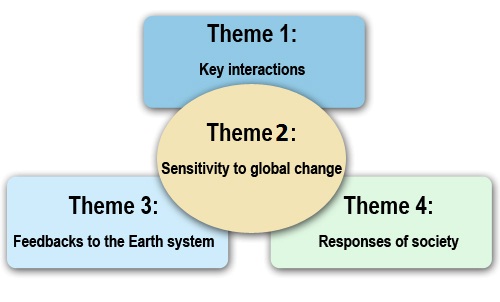Previously known as OCEANS, IMBER was initiated by the IGBP/SCOR Ocean Futures Planning Committee in 2001. The intention was to identify the effects of global change on the ocean and the most important biological and chemical aspects of the ocean’s role in global change. In pursuit of its goal, IMBER research is structured around four scientific themes that address specific issues.
IMBER Research Theme 1 – Interactions Between Biogeochemical Cycles and Marine Food Webs
IMBER Research Theme 2 – Sensitivity to Global Change
IMBER Research Theme 3 – Feedbacks to Earth System
IMBER Research Theme 4 – Responses to Society For more information, please visit: www.imber.info The new IMBeR Science Plan and Implementation Strategy (SPIS 2016-2025) is based on the vision “Ocean sustainability under global change for the benefit of society” with the goal to: “Understand, quantify and compare historic and present structure and functioning of linked ocean and human systems to predict options for securing or transitioning towards ocean sustainability”. The SPIS is structured around three Grand Challenges and four Innovation Challenges supported by a number of research and societal questions. You can see the SPIS here: . |


